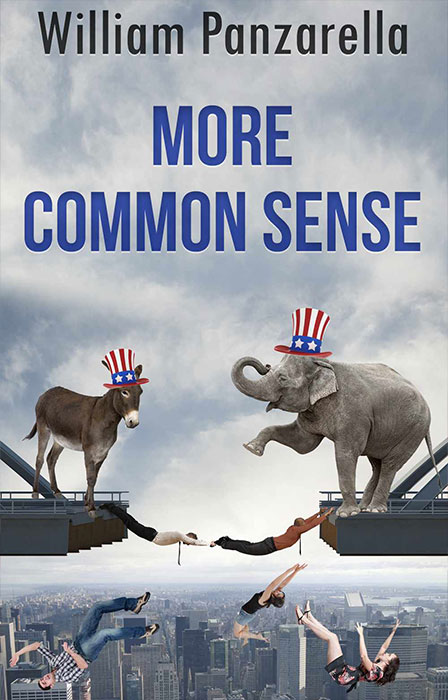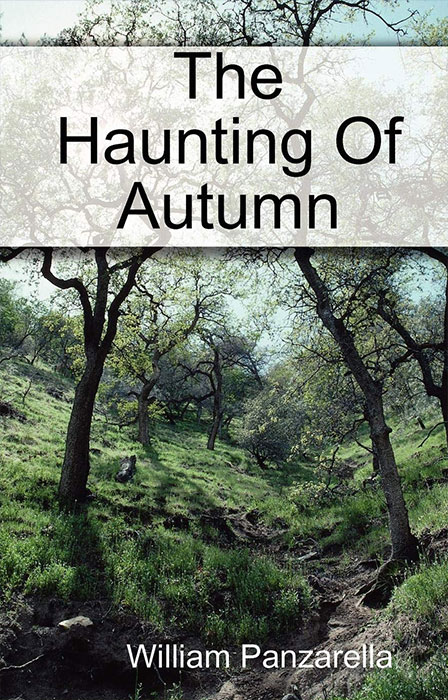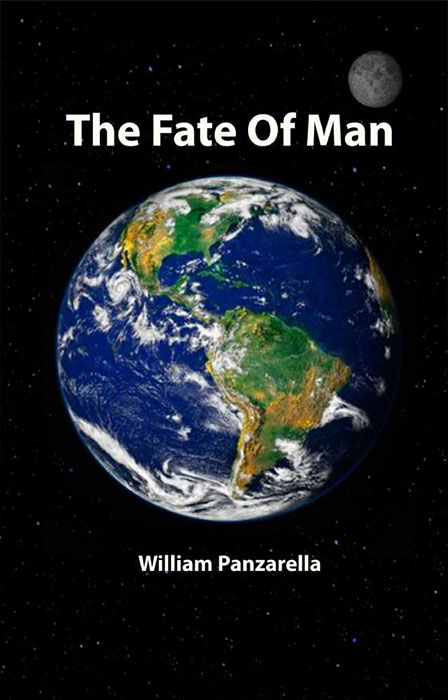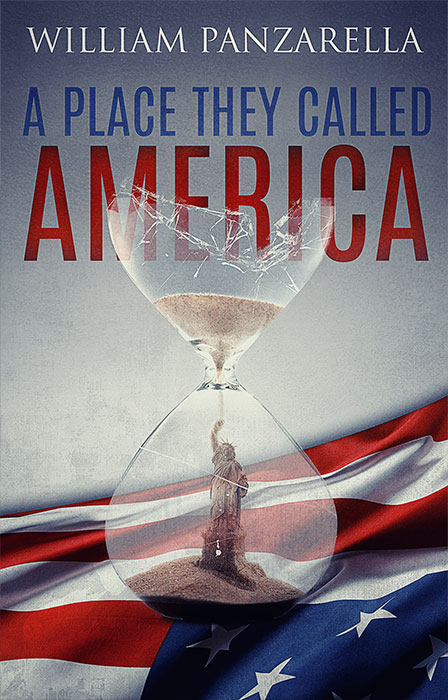American Horse
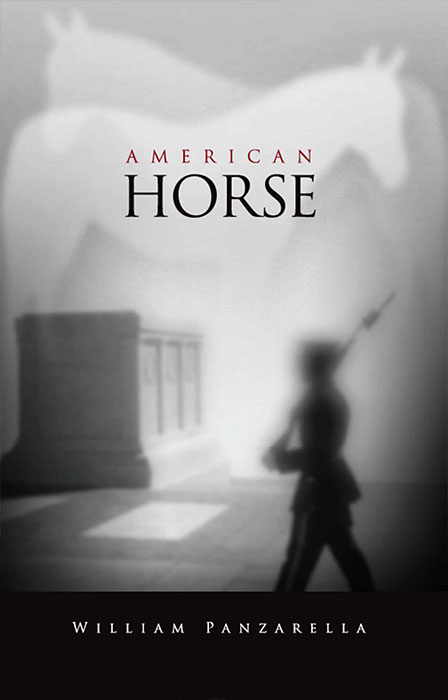
Frank Keller was only seventeen when the Japanese attacked Pearl Harbor. After graduation, he had planned on working full time at his father’s hardware store, perhaps one day even taking over the business. Once eighteen, he dreamt about asking his girlfriend’s hand in marriage so they could start a family of their own. But those plans would have to wait, as like millions of other young men across the country, Frank first had to help save the world. Frank was one of the fortunate ones who made it back home from the frontline. He was part of the Great Generation, living through, and benefiting from, America’s vast expansion and prosperity. But in time, he and his family will be plunged into the chaos and division of the Sixties and early Seventies. While Vietnam was fought with guns and bombs in the battlefields of Southeast Asia, its ideology was fought in the streets, campuses, and homes across the United States. It pitted sons against fathers, brothers against sisters, the government against its citizens. The Keller household will be no exception. As the world around him starts to unravel, Frank will travel on his own dark journey of confliction, grief and regret. And like America itself, he will try to make sense of it all and find redemption.
Purchase
The year was 1941. America had managed to survive both the Great Depression and the Dust Bowl. Though the unemployment rate was still over fourteen percent, it was a far cry from its peak in 1933, when it reached the unprecedented rate of nearly twenty-five percent. Roosevelt’s New Deal appeared to be working. Across the vast Great Plains, the skies had finally reopened, quenching the dying land’s thirst, as some of the Dust Bowl refugees, as they had come to be called, started returning to their farms and homes. Across the nation, though there was still much work to be done, the feeling was that things were finally getting better. But new storm clouds were already on the horizon.
America was at peace, but she was an exception. For an ocean away, the world was already at war. Germany had already invaded and conquered Czechoslovakia, Poland, Denmark, Norway, and France. Great Britain was under relentless and devastating aerial attacks from the Luftwaffe and teetering on the brink of collapse. Beyond Europe, in China, the invading Japanese were committing atrocities. Several years had already passed since the Nanking massacre, when more than 300,000 people were slaughtered and countless women raped. The Italian Army had pushed into East Africa, taking Ethiopia and invading Egypt and was now at war there with British troops.
In America, notwithstanding a few muffled voices, isolationism was the mantra of the day. Though the government was already shipping supplies to Britain to aid in its struggle, the vast majority of adults, with the carnage of the Great War (and the Great Depression) still fresh in their memories, both deplored and feared the thought that distant winds of war could once again sweep them into action. Let Europe’s problems stay in Europe, the citizens clearly and loudly petitioned Roosevelt. What was happening in China and the small, obscure islands of Japan was hardy even an afterthought for most civilians. But open-mindedness rests with the young and for the youth of America the idea of isolationism was not so cut and dry. Enter Frank Keller and Robert Davenport, best friends from Bayside, New York. Seven months away from graduating high school, they were on the precipice of a watershed moment, not only in their own lives, but of all history.
It was an unusually warm day for mid-October in New York. It was late Saturday morning and a bright sun was bursting through the azure sky, which was dappled only by a few, thin, transparent clouds. On the sidewalks people walked to and fro, carrying groceries, newspapers, holding their children’s hand, almost always greeting each other with a short pleasantry.
“Good morning, Mrs. Tyler.”
“How are you today, Mr. Thompson?”
“Beautiful day isn’t it, Mr. Rossatto?”
Chevrolet Clippers, Chrysler Highlanders, and Buick Coupes glided sporadically along the coarsely paved roads. Stores bustled with business.
For kids, other than a few chores, Saturday meant free time. As they often did when they had idle time, Frank and Robert—or Bob, as everyone called him—arranged to rendezvous at their favorite meeting place: American Horse, a horse ranch not far from their respective homes.
Frank, a tall, slender seventeen-year-old with thick, straight brown hair had already been there for nearly half an hour, waiting for his best friend since third grade. Not that he minded the wait. With crossed arms, leaning against the weathered, wooden fence that stretched along the entire perimeter of the property, Frank gleefully gazed at Old Man Baxter placidly leading a lone horse from the stable. The rancher spotted the familiar young man and waved. “Hello Frankie,” he hollered in a coarse voice.
“Hi Mr. Baxter,” Frank responded enthusiastically, as he waved vigorously. “It’s a beautiful day, huh?”
“Yes. Yes it is.”
The high school senior watched with a smile as Baxter and his horse sauntered farther into the background. Ever since he was a small child, Frank had had an obsession with horses—and so did his best friend. He and Bob would often come to the ranch and fantasize about how one day they would own a ranch of their own. Maybe they would even buy American Horse from Mr. Baxter. Oh, the dreams of the young.
“Hey Frank!” rang out a close, chipper voice, snapping the teen out of his trance. Frank turned around to see the person he considered a brother. “Sorry. I was held up. My mother asked me to pick up some groceries.”
“No bother.”
The two friends stood together, leaning against the fence, staring out towards the sprawling ranch. On some days Old Man Baxter would come over and chat with them, maybe even let them help out in the stables. But this day he seemed too involved with his own work. After admiring a gray, spotted mare trot about, Frank and Bob discussed the local rumor mill. But then, as it often did in such unsteady times, the conversation turned more serious.
“Hey Frank, you know Mr. Rosenbaum, he runs the five and dime on Hanson Street?”
“Sure. He’s a nice fella.”
“Well I overheard him talking to this man about how the Germans were taking anyone Jewish to these prison camps and then killing them. Just because they were Jewish.”
Frank turned to his friend, so that just his left arm was against the wood fence. “Yeah I heard that too. But those Nazis seem to be killing everybody. I heard on the radio the other day that the Krauts are advancing further into Russia. They’re almost at Moscow.”
“Russia? Forget Russia. What about England? All you hear is how the whole city is bombed out and that it’s only a matter of time before the Germans invade.” Bob paused. “It’s crazy what’s goin on,” he continued in a low, somber voice. “It’s just crazy.”
“You know it’s only a matter of time before we get dragged into it. We’re already sending supplies over there. Next thing you know it’ll be troops.”
It now seemed as though the two seventeen-year-olds were a world away from the serenity and refuge of the horse ranch that almost disappeared into the landscape. Their thoughts were now of a foreign land of which they had only read about and seen photographs.
“I mean, what if we don’t get involved? The Germans will conquer all of Europe—and everywhere else—and then they’ll be comin’ for us anyway. If someone doesn’t defeat them the whole world will be eating sauerkraut and sausage. And salutin’ Hitler.”
“Frank, you sayin’ that we should send our boys over there?”
Frank looked at his friend and pondered the question. “I don’t know,” he replied in a tone of almost defeat. “All I know is that if we do send boys over there, those boys will include us. We’ll both be eighteen soon.”
Bob just looked down and nodded in agreement.
The duo continued their discussion of the war in Europe, and its ever-expanding dark cloud—a cloud that seemed to be drawing closer and closer to their own country, as if the arms of Ares were reaching across the Atlantic. They spoke of radio reports, newspaper headlines, and newsreel footage played before movies. They also talked about conversations they had overheard, in the candy store, in the barber shops, in school, even between their own parents at home, wondering aloud what was fact and what was fiction. But regardless of the details, they knew that thousands of people were dying each day and nations seemed to be falling like dominos under Nazi control.
Though Frank and Bob were rightfully concerned about a devastatingly spreading war, they were afforded the luxury of switching topics from the Blitzkrieg to what to do on Saturday night, or girls, or what they were going to get for Christmas. There were no bombs dropping on their heads. Tanks were not rolling down their streets. Their neighbors were not dying like flies. In October 1941, the war in Europe was no longer abstract, but it was still not affecting the daily life of the American citizen.
After leaving the ranch, Frank and Bob met up with some other, younger kids from the neighborhood and played a game of stickball. At seventeen, they were the oldest of the group. But it was hard to turn down a game of stickball. Besides, Frank and Bob thought it was neat how the younger kids looked up to them. After about an hour of play, the two best friends went their separate ways, though with plans to meet up again later that evening for a double date.
Frank stopped by his father’s hardware store, which was about a mile away. Frank had worked at the store since he was fifteen. During the school year, he worked only two days during the week, after class for a few hours, and sometimes on Saturdays. But that past summer, he had worked five days a week, at least six hours a day. Despite his childhood fantasies of owning a horse ranch, Frank accepted that his future was to work full-time at the hardware store until the day that he would eventually step into his father’s shoes. But he had no complaints; to the contrary, he was more than grateful. Many people around the country were still out of work and those that did find new jobs were slaving away in factories and on construction projects, six, seven days a week, just to be able to afford the barest of essentials. During the depths of the Depression, countless businesses had closed, especially small mom-and-pop stores. It seemed a miracle that his father’s hardware store had not only survived, but was starting to do well again. Frank was five years old on Black Thursday and had grown-up in the throes of the Great Depression, and though his family fared better than many, he had seen up close the true meaning of hard times. So even with the grandeur of youth, he knew inheriting a successful hardware store was a blessing.
Frank helped his father and chatted with some of the regular customers. It was all small talk and pleasantries.
“How are you today, Mr. Holland?” “Very well Frank, and you?”
“Hey Mr. Farnsworth, how is Billy doing?”
“Frank, your father tells me that you are doing very well in school. That’s my boy.”
Around a 4:45 p.m., Frank and his father started preparing to close the store.
“Hey Pop?”
Mr. Keller, who was putting something away, turned his slender frame around and looked at Frank through his round glasses. “Yes?”
“Remember how I asked you and Mom yesterday if I could take Mary out to the movies tonight, after dinner?”
His father smiled, glad that it was not something more serious. “Yes son, I do. And that’ll be fine. Just as long as it’s okay with Mary’s parents.”
“Oh yes sir, of course.”
Frank had been dating Mary Capelli, a girl from the neighborhood, for almost a year. Though Mary’s mother was born in New York and was of Irish descent, her father was from Rome and came to America as a boy. Although there was not the same prejudice against Italians as there were the Germans at the time, Italy was part of the Axis and Mary did find herself in the crosshairs at times, because of her last name. One time at school two boys started calling her “WOP” and “Nazi Lover” as she walked by. Frank, who happened to be a few yards away talking to Bob, overheard the deriding and immediately ran over. Though he could handle himself, Frank was not known as a fighter or tough kid, but when one of the boys made another derogatory comment towards Mary, Frank punched him in the mouth, knocking him to the ground. When the other boy tried to stand up for his friend, Frank gave him a pounding as well. No one at school ever messed with Frank, or more importantly Mary, again.
Naturally, he did get in trouble over the incident and his dad gave him a tongue-lashing, but inside he was also extremely proud of him. And after reading Frank the riot act about fighting in school, he added: “With that said, I want you to know son that even though you might have gone about it the wrong way, I didn’t raise you to be a coward. And I respect that you stood up for not only yourself, but for Mary.”
As for Mary’s parents, who already liked Frank, they would never forget what he had done for their daughter. In fact, from that point on, her father thought of Frank as a son and bragged about him whenever the chance arose.
After closing the hardware store, Frank and his father headed home, where his mom had dinner waiting for them. It was just the three of them. Frank had had an older sister, Ellen, but she died before he was born. She was only eleven months old when she succumbed to complications brought on by scarlet fever.
As they did before every dinner, the family of three sat around the table and clasped their hands as Mr. Keller said grace. “Dear Lord, we thank you for the food we are about to eat. We thank you for the roof over our head and that we are together. We know so many others have it much worse than us—and we pray for them, too, Lord.”
As the potatoes, bread and cabbage were passed around the table, the conversation was started by Mrs. Keller asking her husband Harold, then Frank, how their days were. However, inevitably, the dialogue turned to the war in Europe. “So I heard today that the Germans are almost at Moscow,” Frank proclaimed with inquisitive enthusiasm. “It doesn’t seem like anything is going to stop them.”
“Do we have to talk about war at the dinner table Frank?” His mother responded.
Frank had always been obedient to his parents’ wishes, but how could they not talk about the War? It was all over the newspapers, the radio, the schools. It seemed to find its way into every conversation. In fact, he was certain that Bob and his family were sitting around the dinner table discussing it, as was Mary’s family. Frank knew that his mother was just sick of hearing about it and on some, small level he could understand. But the unprecedented conflict in Europe wasn’t going away. To the contrary, it seemed as though it was getting even worse.
“Pop, do you still think there’s no way we’re sending troops over there? I heard we’re sending more and more supplies each day.”
Mr. Keller swallowed his bite of food and placed down his fork. “Let me tell you something son, where was Europe and the rest of the world during the Crash, during the Dust Bowl? I didn’t see anyone sending over any food or help to us. You know how many young American boys died over there during the Great War, fighting for the French and the Brits? But when America needs help who came to our aide? No one. And they never will. You think if we were attacked the Brits or the French would send their boys over here?” He went on, his voice gradually rising after every word. “Well son, I think we both know the answer to that.”
“Your father’s right,” his mother submissively chimed in.
Frank understood what his father had said, but still felt the urge to talk about what was going on, seemingly a world away. “I heard that the Nazis are going around killing people just because they’re Jewish. They’re actually rounding them all up so they can kill ‘em.”
“Oh Frank,” Mrs. Keller quickly interjected. “You should know better than to believe everything you hear or read.”
“Your mother’s right son. They want everything to seem even worse than what it really is so the American people will buy into it and demand that President Roosevelt send our troops over there.” His father began to cut a piece of potato. “Besides, the Jews can fend for themselves. Don’t get me wrong, I got nothin’ against them, but again, do you think they would help us out?”
Frank had always heeded and been influenced by his father’s words. Early on it may have been out of sheer instinct, nature. But the older he became, the more he came to understand and respect his father, the only real role model in Frank’s life. But, at seventeen, though he still respected his father immensely, he was old enough to form his own intellectual opinions of the world, of how things worked. Nonetheless, Frank sympathized with his father’s words about the war not only because he was his son but also because his own mind and experience said his father was probably right. If the shoe was on the other foot, perhaps no one would come to America’s aid. But another part of him said there was too much death and suffering in Europe and elsewhere just to stand by. One part of him knew with certainty that if the United States sent troops to Europe thousands, maybe tens or hundreds of thousands of young American men would never make it back. But he was also convinced that if America didn’t intervene and stop Hitler, no one could. Frank was torn. The issue of the war made him realize more than ever that things are not always black and white. Sometimes there is no clear, definitive choice.
After dinner, Frank walked over to Mary’s house to pick her up. It was less than a ten minute walk. Her father greeted him warmly as usual and invited him in. While Mary finished getting ready, Frank exchanged pleasantries with her parents. They did not discuss the war.
The two high school seniors then started their walk to the movie house, where they were going to meet up with Bob and Annette, Bob’s girlfriend. Like Frank and Bob, Annette and Mary were close friends and the four often went on double dates and hung out together. When they did, there never seemed to be any disagreements or friction. It was always a good time. When the four were together they were always encompassed in their own little bubble of laughter and glee, no matter what else was going on in the world.
When Frank and Mary arrived at the movie house, Bob and Annette were already waiting out front. The movie, Dr. Jekyll and Mr. Hyde, was not going to start for another forty minutes, so the four hung out by the entrance. As Frank and Bob talked about school, the girls discussed Mary’s older sister Mildred’s upcoming wedding. Mildred, who was twenty-two, was getting married in the beginning of November. Mary was terribly excited. Not only was it her only sister’s wedding, but also she was the maid of honor.
The next morning, as he did every Sunday, Frank put on his only suit and accompanied his parents to church. As with the majority of Americans at the time, Sunday Mass was as routine as sitting down for dinner or saying hello to your neighbor. Religion, especially Christianity, had been ingrained in the American culture since before the Revolution. And it was faith, that beckoning light of hope, that most Americans clung onto during the darkest depths of the Great Depression.
